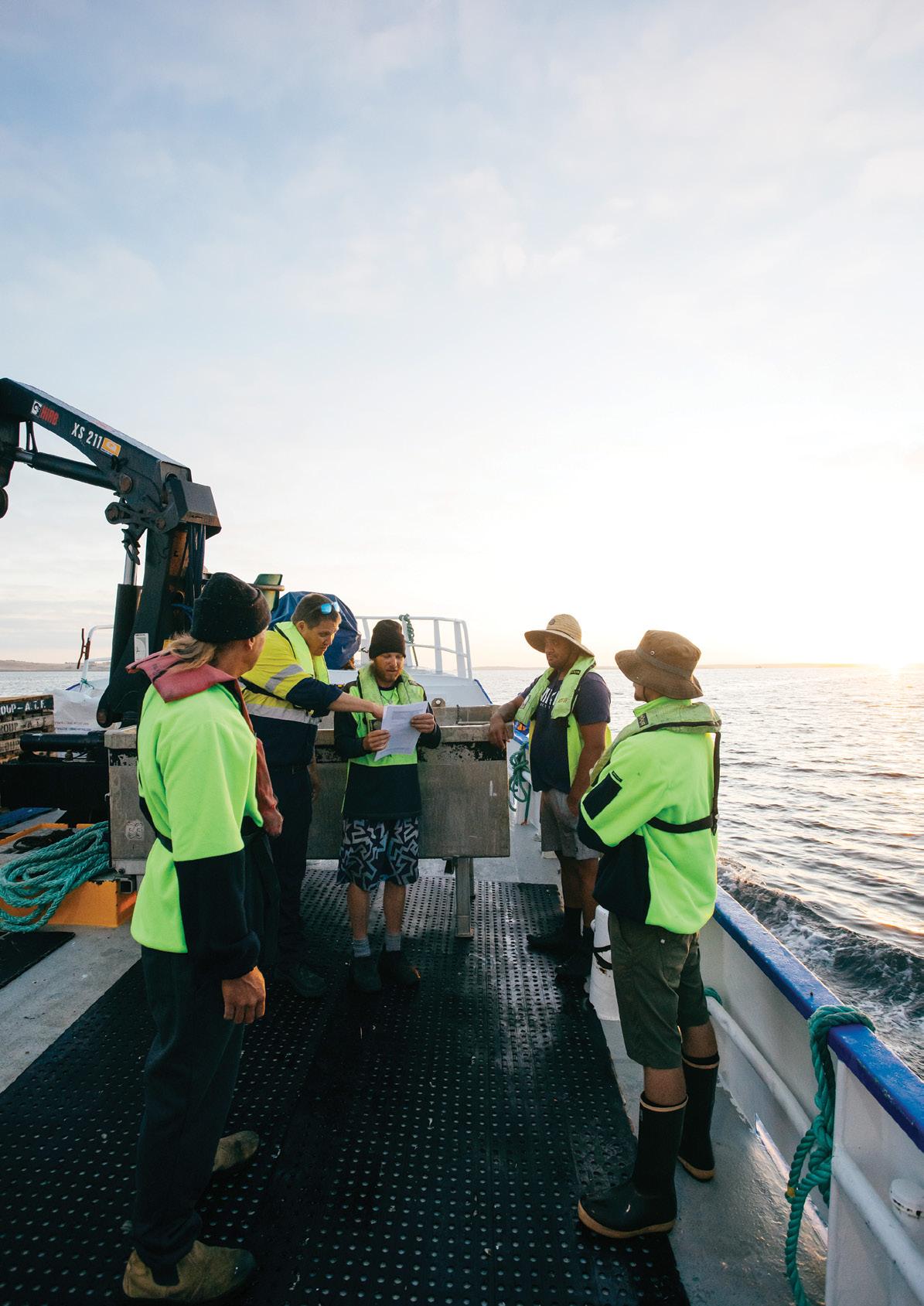
4 minute read
General safety duties for vessel owners
Owners of commercial vessels are varied across the commercial vessel industry—from one-owner-operator scenarios, to corporations leasing vessels to other corporations. Irrespective of the arrangements in place, the legal responsibilities are the same for all owners.
Because no two operations are alike, various standards and requirements exist to address the basic safety requirements across the commercial vessel fleet around Australia.
Advertisement
The general safety duties recognise that operators, masters and crew are best placed to identify and manage risks on the vessel, and encourage the development, maintenance and continuous improvement of a safety culture by all parties in the domestic commercial vessel industry.
The general safety duties also create a ‘chain of responsibility’ whereby obligations are placed on all persons who contribute to the safety of a vessel and its operation—from a boat or equipment designer, builder, manufacturer, to the operator, master, crew, passengers, and any other person whose actions may place the safety of the vessel, or persons on board the vessel, at risk.
Owners of domestic commercial vessels must comply with the number of general safety duties set out in the national law. These duties are fundamental in ensuring the safety of the vessel and its operation.

Safety culture: crew conducting mandatory safety checks on board a fishing vessel
Images by Robert Lang
Top five general duties of the vessel owner
1. Provide and maintain the vessel so that it is—so far as is reasonably practicable—safe.
Make sure the vessel meets construction and equipment standards, survey requirements and is well maintained. Grandfathered vessels may not be in survey, but these vessels must still be fit for purpose, and this must be addressed in the vessel’s safety management system.
2. Provide information, instruction, or supervision to people on board the vessel as necessary to ensure their safety.
Ensure crew are appropriately qualified, are able to implement the vessel’s safety management system, including safety drills and crew inductions. For vessels that carry passengers, a safety induction needs to be provided to each passenger about relevant operational and emergency procedures, as soon as practicable after the passenger boards the vessel.
3. Implement a safety management system that ensures the vessel and its operations are—so far as reasonably practicable—safe.
Assess the risks associated with the vessel and its operation and implement ways of eliminating or minimising those risks.
4. Do not operate the vessel, or cause the vessel to be operated if it is unsafe.
Ensure the vessel is fit for purpose and required maintenance is carried out before setting out on the water.
5. Do not prevent or restrict the master of the vessel from making or implementing a decision that, in the professional opinion of the master, is necessary for the safety of a person or the vessel.
While in many cases where the owner and the master are the same person, this is not always the case. Where this is the case, the owner must not prevent or restrict the Master’s discretion to implement decisions that promote safety.
Separate general safety duties apply to the master of a vessel. In small operations where the owner and the master may be the same person, they must be aware of and meet the responsibilities that apply to both roles.
AMSA takes breaches of the general safety duties very seriously. It’s up to each vessel owner to know their safety duties and how to comply with them.
Breaches can lead to infringements, court fines, or even prison sentences in the most serious cases.
Domestic commercial vessel owners are also required to comply with state, territory or commonwealth work health and safety laws, as well as local waterways management laws.
More information Read more about the general safety duties for domestic commercial vessels at amsa.gov.au/generalsafetyduties
Key concepts
The general safety duties are set out in Part 3 of the national law. The duties require each person who is engaged with a domestic commercial vessel and its operations to do all that is reasonably practical to ensure the safety of the vessel and its operation.
Owner of a vessel includes a person who has a legal or beneficial interest in the vessel (other than a mortgagee) and a person with overall general control and management of the vessel.
Reasonably practicable means what is, or was at a particular time, reasonably able to be done in relation to ensuring safety, taking into account and weighing up all relevant matters. What is ‘reasonably practicable’ is determined objectively. This means that a duty-holder must meet the standard of behaviour expected of a reasonable person in the duty holder’s position.
Unsafe vessel means a vessel that is likely to endanger any person for any reason, including because of any of the following:
the condition or equipment of the vessel
the manner or place in which cargo or equipment on the vessel is stowed or secured
the nature of the cargo
the overloading of the vessel with people or cargo (including the submergence of the vessel’s load line)
the number of its crew or the qualifications of its crew or master.
Read more about the general safety duties for domestic commercial vessels at: amsa.gov.au/generalsafetyduties








